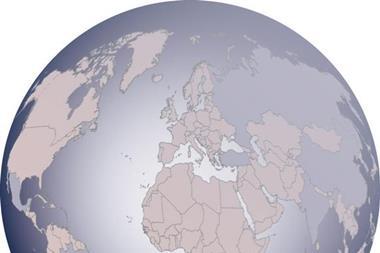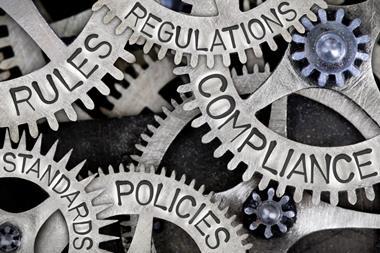How has the German food health scare affected the risk management industry in Europe? Sue Copeman finds out
The E.coli outbreak in Germany led to massive cancellations of deliveries of food products. It wasn’t only farmers that were affected but also the supply chain that is instrumental in getting freshly grown products onto the retailers’ shelves. Processors and restaurants too may have been hit.
This was highlighted by fresh produce asssociation Freshfel Europe whose president Ramon Rey said: "This crisis is unfortunately not only damaging the production but also has a significant impact upon a wide range of operators across the chain."
Cucumbers, tomatoes, lettuces and bean sprouts - all were successively blamed in the space of two or three weeks. As each new warning emerged, supplies were cancelled. Russia even blocked EU vegetable imports.
A few days ago, bean sprouts seemed to be the favourite cause. Now, yet again at the time of writing, it’s a matter of who knows? What is certain is that a lot of businesses have lost of a lot of money.
The farmers look like they’ll be OK. For example, the EU appears to be willing to bail out the Spanish cucumber growers. For the other parties that have suffered loss, the situation may be bleaker. Some may have bought non damage related business interruption insurance and may or may not be compensated depending upon the terms of the policy.
The majority will just have to grin and bear it – another unpredictable loss made worse by the knee-jerk reaction of Germany’s Robert Koch Institute, the German federal institution responsible for disease control and prevention whose lamentable attempts to allocate blame as quickly as possible just meant that more farmers and businesses would suffer.
Clearly when an outbreak like this occurs and affects a relatively large number of people – according to the World Health Organization in early June, around 2,500 of whom 24 died – it is important not to delay warnings unnecessarily. But the speed of these different warnings and the changed subjects suggests that Germany’s health authorities did not actually have much idea of the source of the outbreak.
Like any other life form, viruses evolve. They seem to do it quicker than us! After the different strains of flu that have emerged in the last few years, perhaps it’s not surprising the E.coli mutants are appearing – although once again opinion seems to be divided, and changing, as to whether this particular virus was new, the same or a variant of something experienced before.
I think that there are two main messages that come out of this latest problem. First, over-reacting, whether it’s by governments or companies can be dangerous. Yes, when human life is at stake, no-one wants to delay but it is still important to measure the scale of the problem concerned.
Aesop’s fable about the boy who cried wolf still holds true today. Pressing panic buttons too often when there may not be an actual major problem can mean that eventually no-one takes much notice when a true disaster is developing. For example, the likelihood of a pandemic has probably slipped down the risk register for most companies, compared to two years or three years ago.
This is not because a pandemic has become less likely. Indeed, national and international health authorities believe that it is a high risk. But the scaremongering around Hong Kong flu, avian flu and the like – with the failure of these predicted pandemics thankfully to have actually materialised to a significant extent - has driven complacency.
Authorities need to think long and hard before they trigger a major international alarm.
The second lesson, one that risk managers are becoming increasingly aware of, is that non-damage incidents can cause considerable disruption and have a significant impact on corporate profitability. The Iceland volcano ash cloud last year is a good example. It’s interesting to see that Australia has recently had similar problems with some flights grounded following Chile’s volcanic eruptions.
Volcanic ash clouds are again something that would have been unlikely to appear on European companies’ risk registers three years ago. Clearly, it is dealing with effects rather than causes that makes for a robust business continuity strategy.
Hopefully, the worst effects of the German E.coli outbreak are behind us. Hopefully too we will not see another instance where, what appears to be an outbreak of food poisoning in one country, will be elevated to the status of an international problem.
Finally, as one US blogger commented, “Announcements of implicated sources were made on insufficient proof, the level of scrutiny and investigation was weak, and the reasons opaque. The nature of the outbreak was clearly North German based, yet the first announcements targeted non-German food sources.”



















